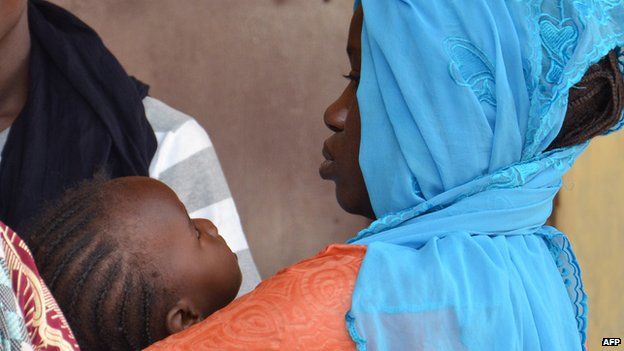Niger meningitis: Vaccination starts after schools closure
- Published

Niger has begun a mass vaccination campaign as it struggles to control a meningitis outbreak that has now killed 129 people.
Health Minister Mano Aghali announced on public radio that the death toll had risen from 85 in less than a week.
The effort to immunise children between two and 15 has started despite a shortage of vaccines.
Schools in and around Niger's capital, Niamey, were shut this week to contain the virus.
It was a shortage of vaccines to treat the current strain that caused the outbreak to spread, the authorities say.
Appeal for help
Only half of the 1.2 million doses needed are currently available and the government has said it is still waiting for more to arrive, reports the BBC's Baro Arzika in Niamey.
Prime Minister Brigi Rafini had earlier this week appealed for help in getting the remaining doses.
The authorities have warned people against using unauthorised vaccines, saying the doses might be for the wrong strain of the disease.
The health minister says 1,150 cases have now been recorded, mostly in the Niamey and Dosso regions where it is now endemic.
Meningitis is an infection of the meninges - the membrane that surrounds the brain and spinal cord.
Symptoms can include severe headaches, fever, drowsiness, stiff neck, vomiting, confusion and a fear of light. A rash may also appear.
According to the World Health Organization, it can cause severe brain damage and is fatal in 50% of cases if untreated.
There is a "meningitis belt" in sub-Saharan Africa, stretching from Senegal to Ethiopia, with high rates of the disease, the WHO says.
- Published4 August 2023